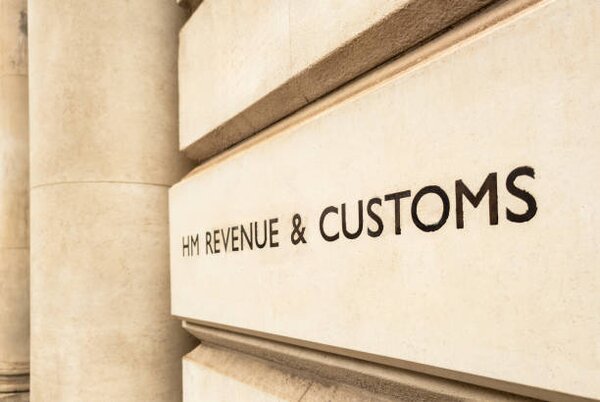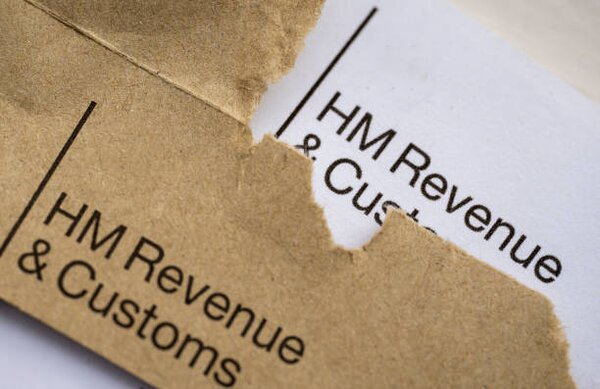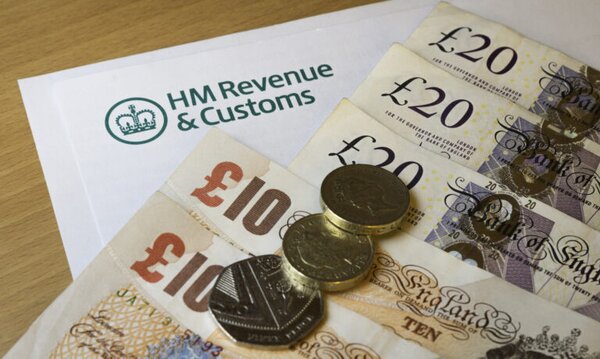Let’s Keep Corporation Tax Simple
Corporation tax is what UK companies pay on their profits—from trading, investments, and any gains they make. It’s a key part of doing business and something every company needs to get right.The tax rates and thresholds can change, so staying updated is crucial to avoid unnecessary penalties. It’s the responsibility of company directors to make sure corporation tax is filed and paid on time. Getting advice from an accountant or tax expert can also make the process a lot smoother.
In this guide, we’ll break down the essentials you need to know about corporation tax—without the jargon.
What's this Corporation Tax Payment All About?
Running a UK company? Then you’ll need to pay corporation tax to HMRC. Unlike your personal taxes, this doesn’t happen automatically - it’s up to you to calculate, report and pay the right amount.
Corporation tax is charged on your company profits. The standard rate is currently 25% for companies with profits over £250,000, with lower rates for smaller businesses.
Most companies need to pay 9 months and 1 day after their accounting period ends. Miss this date and you’ll face penalties, so it’s worth marking in your calendar! If you have any questions or need assistance with your corporation tax payment, speak with our experts for support.

What Exactly Is an HMRC Corporation Tax Payment?
An HMRC corporation tax payment is the money your limited company pays to the government based on its taxable profits. It’s not deducted automatically like PAYE - your company needs to handle this itself.
The current main rate stands at 25% for larger companies, but smaller businesses with profits under £50,000 pay just 19%. There’s a sliding scale for those in between.
Unlike personal tax, there’s no tax-free allowance with corporation tax. Your company pays tax on all its profits after allowable expenses and reliefs have been deducted.
Every company director must register for corporation tax within 3 months of starting business activities. HMRC needs to know you exist before you can pay them! Seeking advice from experts can ensure your business handles these responsibilities correctly.
Understanding Your Corporation Tax Bill
A corporation tax bill is a document that outlines the amount of corporation tax a company needs to pay. The bill will include the company’s taxable profits, the corporation tax rate, and the amount of tax due.
Companies can pay their corporation tax bill online, by telephone banking, or by post. It is essential to pay the corporation tax bill on time to avoid interest charges and penalties.
Companies can also notify HMRC if they don’t owe any corporation tax to stop payment reminders. If a company is struggling to pay its corporation tax bill, it can seek advice from an accountant or tax expert.

How Do I Actually Pay My Corporation Tax?
The easiest ways to pay are through online banking, faster payments, or Direct Debit. Most companies find these methods quick and hassle-free.
When paying, always use your 17-character Corporation Tax reference number. Without it, HMRC won’t know the payment is from you, which could lead to penalties even though you’ve paid.
It is crucial to select the appropriate bank account for making Corporation Tax payments to ensure the transactions are correctly managed within your financial software.
Remember that different payment methods take different times to process. BACS payments need 3 working days, while faster payments usually arrive the same day.
You can check if your payment has been received through your HMRC Business Tax Account online. It’s worth keeping an eye on this to make sure everything’s in order.
HMRC no longer accepts credit card payments, but company debit cards are fine. They’ve simplified the process but reduced payment options.
When Do I Need to Pay My Corporation Tax?
Your deadline is typically 9 months and 1 day after your accounting period ends. If your company’s accounting period ends on 31 March, you’d need to pay by 1 January the following year.
Unlike some tax deadlines, corporation tax deadlines don’t move if they fall on weekends or bank holidays. Your payment must reach HMRC by the deadline regardless of whether it falls on a weekend or bank holiday.
Larger companies with profits over £1.5 million have different rules and must pay their corporation tax in quarterly instalments. This helps HMRC collect tax sooner from bigger businesses.
The key thing to remember is that your payment must have cleared HMRC’s account by the deadline date. Leaving it until the last minute is risky!

How Can I Check My Payment Status?
The simplest way to check if HMRC has received your payment is through your online Business Tax Account. This shows your payment history and any outstanding amounts, including the status of submitted payments.
Payments typically appear on your account within 3-5 working days. If you’ve paid but it’s not showing up after this time, it’s worth contacting HMRC.
If you’ve used an incorrect reference number, your payment might be sitting in HMRC’s suspense account. They can usually track it down if you provide proof of payment.
Your accountant can also check your payment status if they have agent authorization. Many business owners find this takes some stress out of the process.
Any Tips for Managing My Corporation Tax Payments?
Setting aside money throughout the year makes the payment less painful. Many businesses put around 20-25% of their profits into a separate tax account monthly.
Keep your financial records up-to-date all year round. Last-minute calculations often lead to mistakes and unexpected tax bills. Seeking personalized guidance can help you manage these payments more effectively.
Consider making payments early if you have the cash available. There’s no benefit in waiting until the deadline if you already know how much you owe.
Making your corporation tax payment shouldn’t be stressful if you plan ahead. I once missed a deadline by just one day and faced an immediate penalty – a mistake I’ve never repeated since!

Need Help With Your Taxes?
Managing your tax obligations can be challenging, especially when you’re focused on running your business. That’s where specialised tools or professional support can help. Contacting a team for assistance with tax-related issues can provide the guidance and support you need.
There are solutions available that offer integrated bookkeeping, real-time tax estimates, simplified tax return processing, and access to expert advice all in one place.
Remember, staying on top of your tax responsibilities not only keeps HMRC happy but also gives you better visibility of your business finances.











